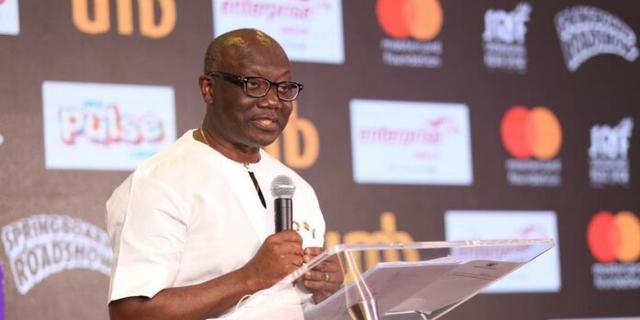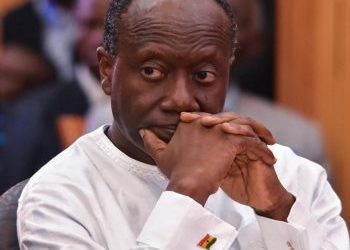The amount brings to $1.2 billion the total amount of funds the IMF has disbursed to Ghana after the government reached a deal with them in May 2023.
Speaking at a joint press conference organised by the Ministry of Finance, the Bank of Ghana (BoG) and the IMF in Accra on Friday, the IMF Mission Chief for Ghana, Stephane Roudet, said the Fund had released the $600 million to the BoG.
He said Ghana’s performance under the ECF had been strong and compelling, adding that “all quantitative performance criteria for the first review and almost all indicative targets and structural benchmarks were met.”
The IMF Mission Chief for Ghana, indicated that the fiscal reforms being pursued by the government were bearing fruit and signs of stabilisation were emerging.
“Growth in 2023 has proven resilient, inflation has declined, and the fiscal and external positions have improved.”
The Minister of Finance, Ken Ofori-Atta, said the endorsement of the first review of Ghana’s programme was a resounding affirmation that the programme was advancing steadily, and the country’s reform trajectory remained steadfast.
He said the agreement reached with official creditors was a powerful vote of confidence in the country’s economic strategy.
“Consequently, this endorsement has unlocked a US$600 million disbursement from the IMF and will pave the way for an additional US$300 million disbursement from the World Bank under the Development Policy Operation Financing by the end of February. In addition, we expect the World Bank to approve $250 million to support the Ghana Financial Stability Fund,” he stated.
Those resources, the Finance Minister explained, would go into general budget support and specifically be allocated to areas such as education, health and road and would significantly bolster the country’s economic recovery efforts.
Mr Ofori-Atta said the debt agreement with the OCC granted Ghana a considerable cash-flow relief during the programme period, saying “Ghana will not be making payment on debt service to our official bilateral creditors until the end of 2026.
“Going forward, strong, and ambitious structural reforms would be implemented in the areas of tax policy, public financial management, financial, energy and cocoa sectors to support the country’s fiscal consolidation and growth agenda,” the Finance Minister said.
Mr Ofori-Atta said the government was committed to fully implementing the IMF-supported PC-PEG, and had put in place all the necessary implementation arrangements to make sure the programme did not derail so the country could fully achieve its intended objective.
“Now, the final crucial step in our strategy involves the restructuring of our commercial debt, particularly our Eurobonds.
The IMF Board’s approval of the first review and the recent agreement with official creditors set the stage for our forthcoming re-engagement with bondholders, which will commence as early as next week,” he said.
The Governor of BoG, Dr Ernest Addison, said the BoG was working on delivering its mandate on price and financial stability.
He observed that the recent trends in inflation that the economy had witnessed in the course of 2023 suggested that the country was on course.
“A year ago at this time, inflation was at around 54 per cent. Through strong and innovative policies, tight monetary conditions and relative exchange rate stability, inflation has been more than halved by the end of 2023 and is currently reported at 23 per cent,” the Governor pointed out.
“With a successful conclusion of the first review, we need to begin to think of the second review of the programme and beyond. While tentative indications point to sound implementation of policies through to December 2023, vigilance and commitment will be needed in 2024 to undertake all the structural reforms envisaged under the programme implementation,” Dr Addison stated.
Ghana, in June 2022, signed on to the $3 billion, a 36-month ECF arrangement with the IMF for balance of payment support to restore macroeconomic stability and debt sustainability.










Discussion about this post